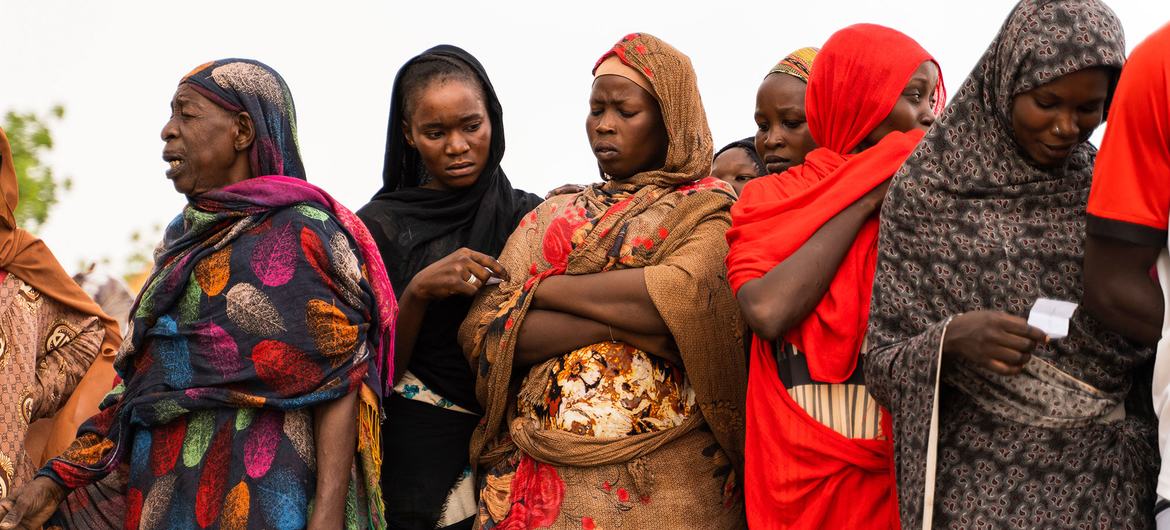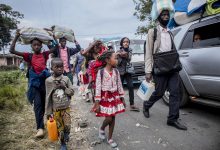Rights violations ripple across war-torn Sudan
“For nearly a year now, accounts coming out of Sudan have been of death, suffering and despair, as the senseless conflict and human rights violations and abuses have persisted with no end in sight,” said UN High Commissioner for Human Rights Volker Türk.
The report details multiple indiscriminate attacks by both the Sudanese Armed Forces (SAF) and the Rapid Support Forces (RSF) in densely populated areas between April and December 2023, including sites sheltering internally displaced people, particularly in the capital Khartoum, Kordorfan and Darfur.
By mid-December, more than 6.7 million people had been displaced by the conflict, both within Sudan and into neighbouring countries. This number has since increased to more than eight million.
“This report underlines once more the dire need to end the fighting and to break the cycle of impunity that gave rise to this conflict in the first place,” the UN rights chief said.
Silence the guns
Based on interviews with 303 victims and witnesses, including dozens conducted in Ethiopia and eastern Chad, and analysis of photographs, videos, and satellite imagery and other open source information, findings show a pattern of ethnic-based attacks as well as the use of heavy, sophisticated weaponry.
Both parties to the conflict used explosive weapons with wide-area effects, such as missiles fired from fighter jets, unmanned aerial vehicles, anti-aircraft weapons and artillery shells in densely populated areas.
This week, the UN Human Rights Office reviewed credible video evidence showing several students travelling by road in North Kordofan state may have been beheaded by men in SAF uniform in El-Obeid City – the victims were seen as being RSF supporters based on their perceived ethnicity.
The footage was posted on social media on 15 February showing troops parading with decapitated heads in the street while chanting ethnic slurs, the Office said.
“The guns must be silenced, and civilians must be protected,” Mr. Türk said.
 © UNOCHA/Ala Kheir Women waiting for aid distribution in Wad Madani, Sudan.
© UNOCHA/Ala Kheir Women waiting for aid distribution in Wad Madani, Sudan.
Death toll reaches into the thousands
The report highlights more examples, including two separate incidents in April in Khartoum, where eight missiles fired by the SAF killed at least 45 civilians. In Omdurman, two artillery shells fired by the RSF hit a market in June, killing at least 15 civilians, and 10 civilians died when RSF shells exploded in a bus station in September.
Between May and November 2023, the report found, the RSF and its allied Arab militia carried out at least 10 attacks against civilians in El-Geneina, the capital of West Darfur, killing thousands, most from the African Masalit ethnic community. There were also killings by the RSF and its allies in the town of Morni and in Ardamata, where at least 87 bodies were buried in a mass grave.
Tweet URL
Sexual violence, gang rape
The report reveals that by 15 December 2023, at least 118 people had been subjected to sexual violence, including rape, gang rape and attempted rape, among them 19 children.
Many of these crimes were committed by RSF members, in homes and on the streets, according to the report, which stated that one woman had been held in a building and repeatedly gang raped over a period of 35 days.
The report also found that both parties were actively recruiting across the country. The RSF was recruiting children from Arab tribes in Darfur and Kordofan, and a pro-SAF entity, People’s Authority to Support the Sudanese Armed Forces, stated that it had “armed 255,000 young men in camps across Sudan”
African ethnic communities, including the Fur, Masalit and Zaghawa, also reportedly responded to recruitment campaigns by the SAF, according to the report.
Warning of war crimes
“Some of these violations would amount to war crimes,” said Mr. Türk.
“There must be prompt, thorough, effective, transparent, independent and impartial investigations into all allegations of violations and abuses of international human rights and violations of international humanitarian law and those responsible must be brought to justice.”
The High Commissioner called on both parties to the conflict to ensure rapid and unimpeded access to humanitarian aid in all areas under their respective control.
“A credible re-start of inclusive talks to restore civilian-led government is desperately needed to open a path forward,” the UN rights chief said.
- Sudan



